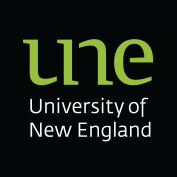STRATEGIES
Personalised Learning Journeys
Crafting, adapting and supporting learning journeys that are distinctive in their accessibility and flexibility
The learning journey of each and every one of us is unique. Whatever the goal, whatever the starting point, whatever the mode of study, whatever the route to get there we will provide the opportunities to succeed.
Below are eight strategies and associated initiatives that will be enacted to help us reach this goal. Initiatives will be managed through the Project Delivery Group (PDG). UNE staff can access a list of strategic initiatives from the Strategic Projects List.
-
dsp-students-text
-
dsp-alumni-text
We will enable students to be UNE students for life
We will seek to maintain a relationship with all our future, current, and former students to enable flexibility of access to ongoing opportunities for education and professional development.
Strategic Initiatives
- As a part of the student blueprint, develop a UNE Membership Model to support access to UNE courses, services and facilities pre and post enrolment.
- Offer incentives to encourage life-long student engagement with UNE.
- Establish Communities of Practice in which all students and graduates are able to participate.
We will support applicants' aspiration to study
All applicants will be supported to engage in a course of study that will best enable their success. This includes the opportunity for students to design a course of study that best meets their personal circumstances and goals.
Strategic Initiatives
- Refine and expand UNE’s Bespoke course options and model.
- Develop in conjunction with partners, multiple entry, exit and enabling pathways for all students, including HDR candidates.
- Develop modularised unit content, short-courses and micro-credentialing to enhance UNE’s dynamic award and non-award offerings.
- Enhance applicant and student systems to ensure timely and nimble response to demand.
We will recognise applicants' skills and experience
Applicants and students will have an opportunity to have their formal and informal learning and skills recognised for credit, minimising their time and financial commitment whilst maximising their opportunity for success.
Strategic Initiatives
- Develop best practice recognition of skills and experience through benchmarking nationally and internationally.
- Benchmark and implement a scalable system to support a timely, academically robust approach to academic credit and Recognised Prior Learning.
- Draw on UNE’s Reconciliation Action Plan (RAP) to inform course development and delivery, including assessment, research and communications and service design.
-
dsp-students-text
-
dsp-alumni-text
We will personally support students on their learning journey
Our support and engagement with students will match their needs wherever they are on their student journey. Our support will be accessible, integrated and consistent in its excellence and quality.
Strategic Initiatives
- Enhance our blueprint for the student journey with a focus on the needs of individual cohorts.
- Deepen life-long engagement with all students through an effective, targeted communication strategy supported by robust and timely data.
- Develop a scalable, personalised academic and student support and pastoral care model underpinned by robust and timely data.
- Review and renew UNE’s approach to HDR supervision, candidate management, progress and reporting and examination.
- Expand our online support and supervision to further enable in country, off-shore, PHDI.
We will recognise student achievement during their learning journey
Academic achievement and skills acquired during the student’s learning journey will be formally recognised.
Strategic Initiatives
- Embed as part of new course development or course renewal, multiple AQF qualifications within the assessment framework of identified courses.
- Develop modularised unit content, short-courses and micro-credentialing and/or badging to enhance UNE’s dynamic award and non-award offerings.
- Review UNE’s Graduate Attributes and our approach to credentialing successful attainment of attributes as they are achieved.
We will support, nurture and provide access to career growth opportunities for staff
Our people will be supported in their professional growth to enable organisational learning, agility, resilience, responsiveness and sustainability.
Strategic Initiatives
- Support professional learning activities aligned with UNE’s current and future capability and capacity requirements.
- Develop a formalised UNE scholarship framework that records demonstrable links to outputs and outcomes of teaching and research staff and staff engaged in professional practice.
- Support staff to deliver a comprehensive academic and research integrity approach.
-
dsp-students-text
-
dsp-community-text
We will implement a place-based approach to teaching
We will tailor what our students and communities experience according to the specific needs of each context; whether physical, virtual, or both’ Our core digital platform will be supplemented by a vibrant campus experience.
Strategic Initiatives
- Develop a decision framework for establishment of international and domestic place-based offerings and partnerships that are supplementary to our core digital offering.
- Establish a team-based approach and governance structure to place-based delivery.
- Refine and implement place-based solutions in identified communities.
- Contextualise UNE’s academic offering aligned with the needs and aspirations of identified communities.
- Identify, develop and nurture industry, community and government teaching and learning linkages in key communities.
-
dsp-community-text
-
dsp-partners-text
We will collaborate to develop and deliver educational solutions with impact
Our connection with industry, government, community and alumni will be strengthened through partnership and collaboration, to deliver sustainable educational solutions that create and embed positive impact.
Strategic Initiatives
- Develop a partnership framework to guide identification, establishment, management and governance of mutually beneficial, sustainable partnerships.
- Develop a UNE co-design framework and aligned skill-base to enable student, partner, industry, community and alumni involvement in course design.
- Review our approach to academic quality to embed a ‘design for quality’ approach alongside traditional monitoring and review approach.
- Develop a UNE Hub Model to support government, community and University resilience (e.g. NEViHN, UNE Connect (Science and Agriculture), the New England Virtual Education Network and UNE Venue (creative arts network).



